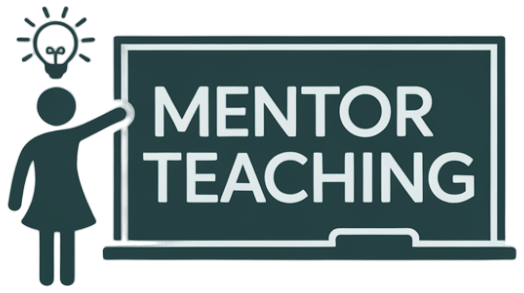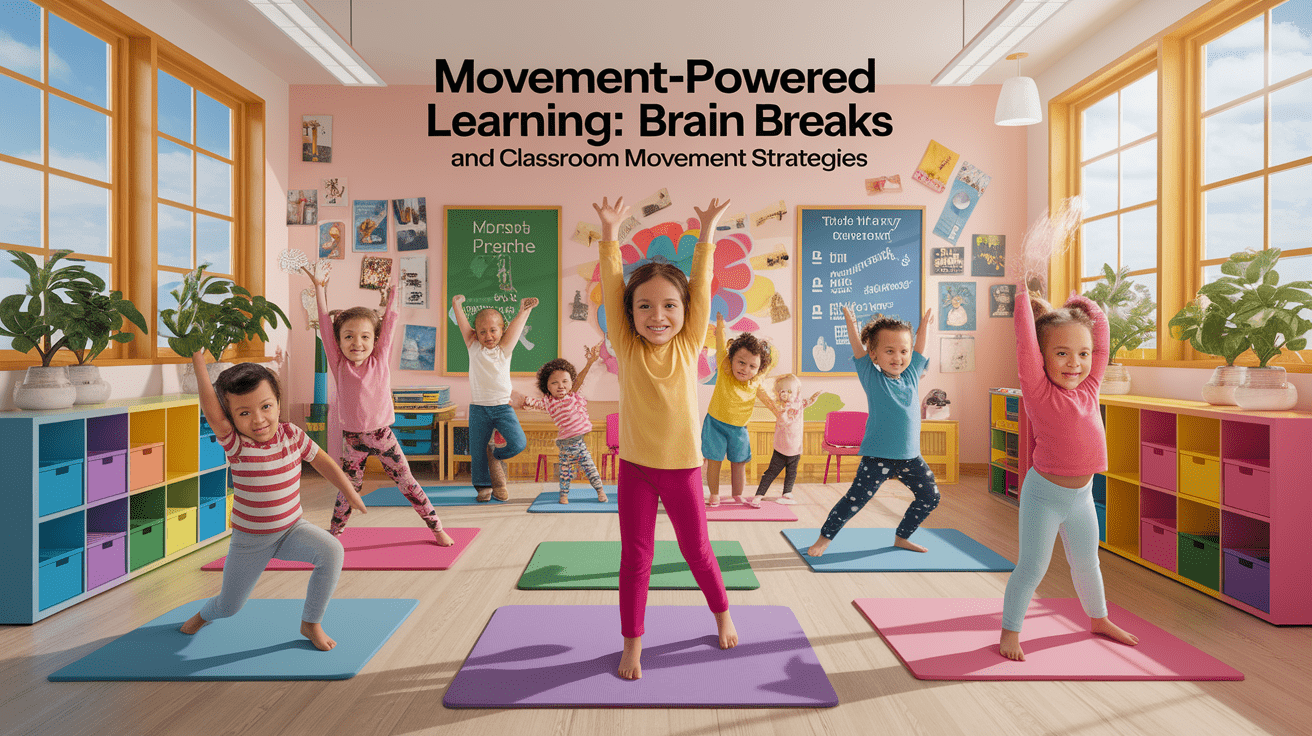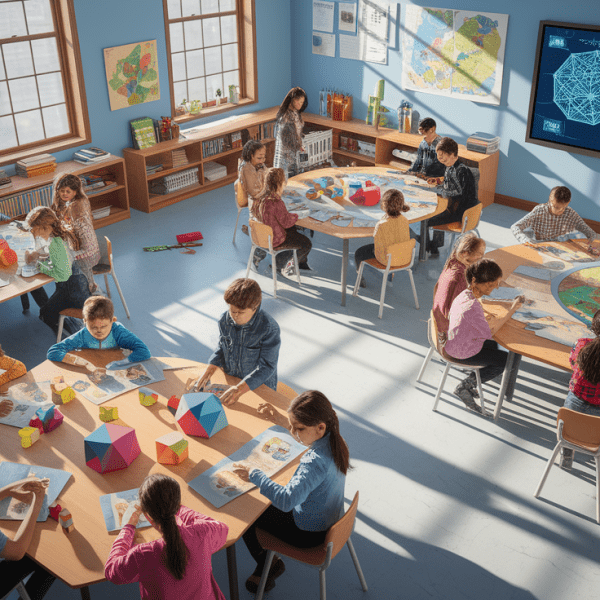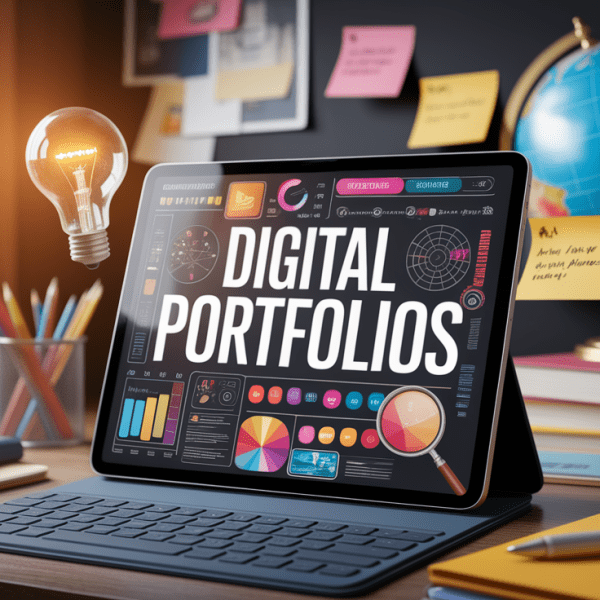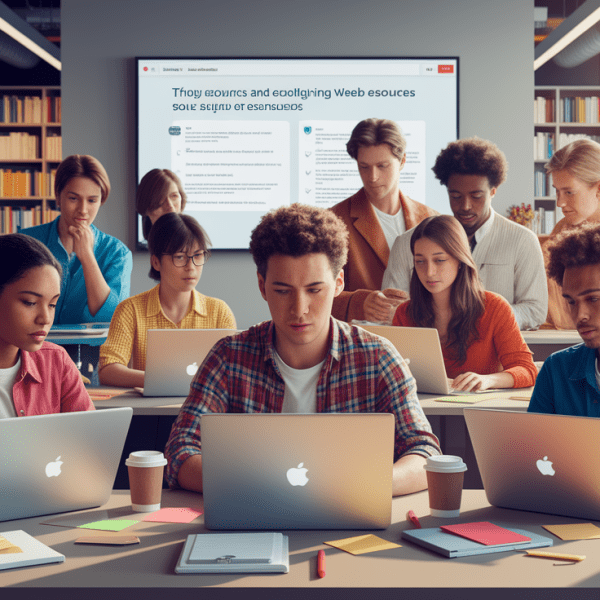Jumpstart Your Class Brainpower
Imagine hitting the “refresh” button for your students’ minds—only instead of clicking a key, you simply get them moving! Brain breaks are short, intentional pauses during instruction that invite students to stretch, wiggle, and wake up their brains. These moments revitalize mental energy by boosting blood flow, oxygen, and readiness to learn. Whether it’s bouncing in place for 30 seconds or a quick, energizing activity that spans a few minutes, the result is a happier, more focused classroom.
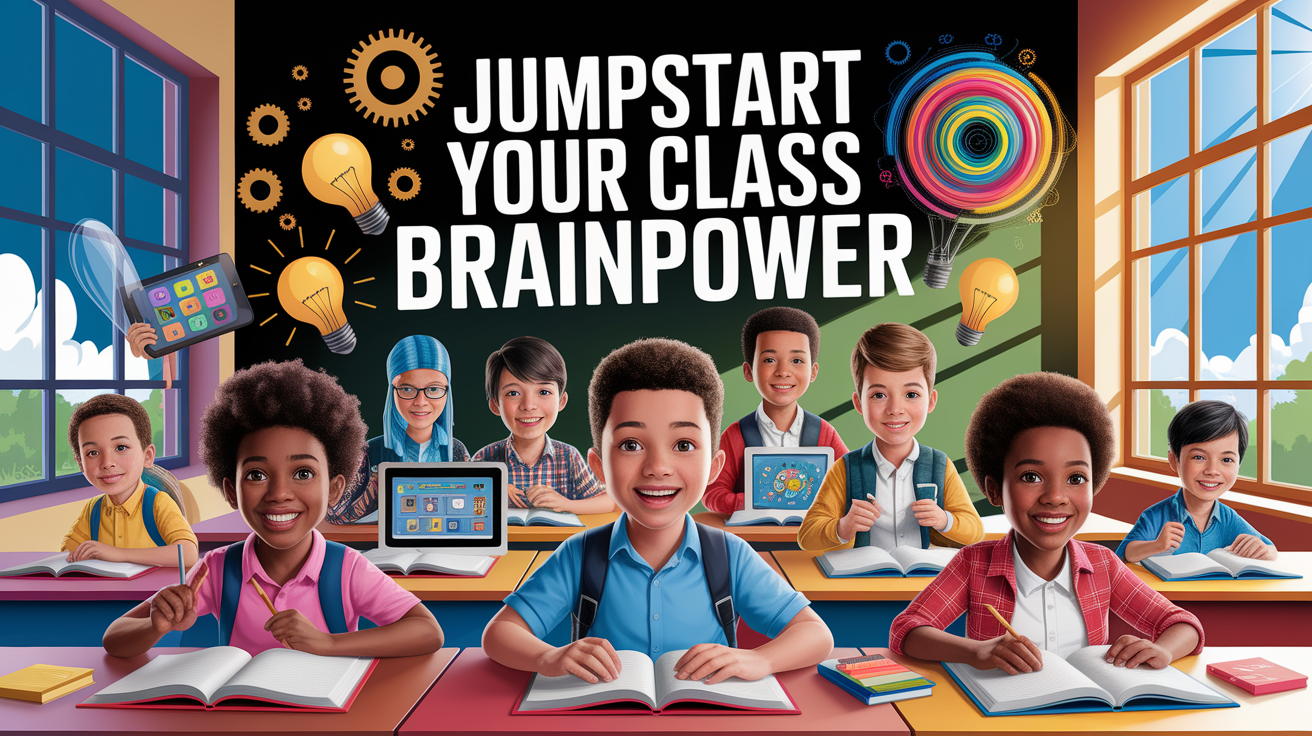
Quick Brain Break Activities
Sometimes you only have five minutes, and that’s all you need! Try these teacher-approved express activities:
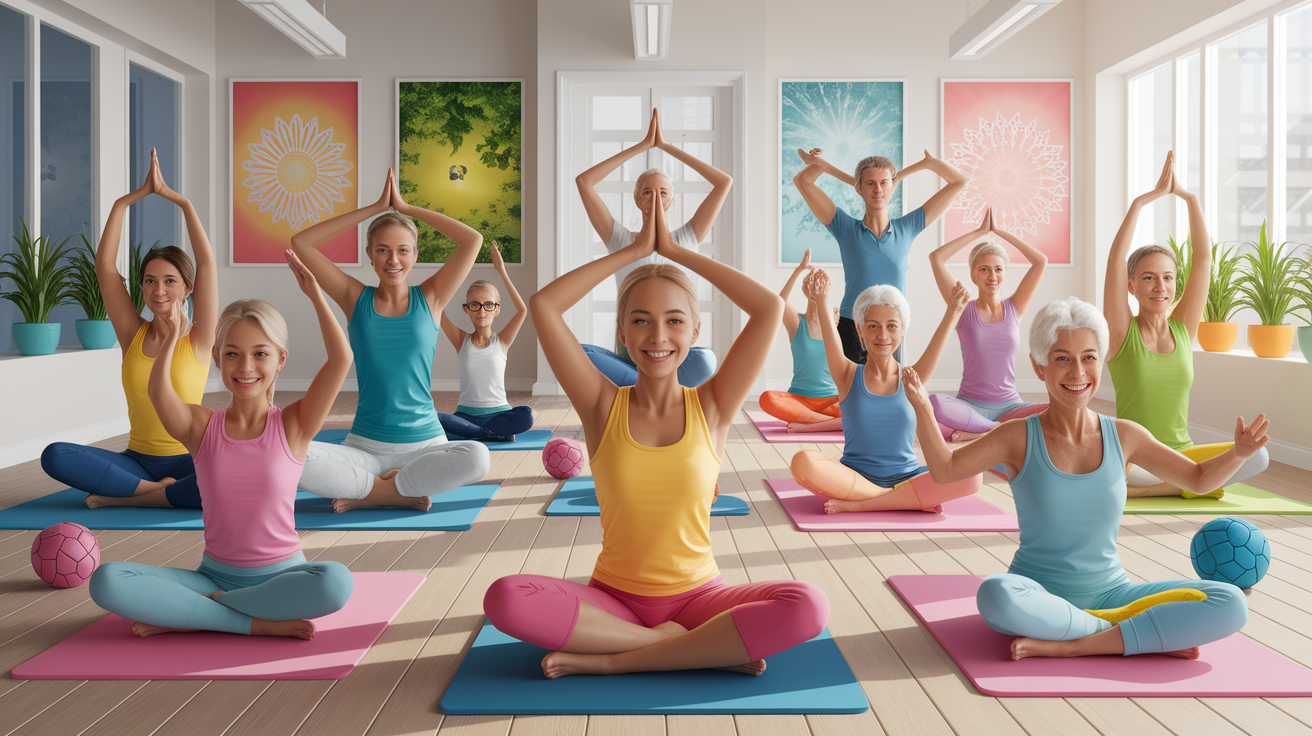
- Stretch Stations: Students rotate through quick stretching exercises that hit all major muscle groups.
- Desk Drumming: Lightly drum on desks to a fun beat to release energy and improve coordination.
- Mini Dance Party: Play a short, upbeat song and let students dance away the restlessness.
- Mindful Breathing: Perfect before tests—students close their eyes and take deep, calming breaths.
- Balance Challenges: Stand on one foot or walk heel-to-toe for a burst of motor skill focus.
According to research-supported teaching strategies, even these quick moments help improve focus, reduce restlessness, and enhance learning retention.
Embedding Movement into Lessons
Movement breaks don’t have to be separate from learning—they can be woven into the content itself. For example, math lessons can turn into “human number lines,” literature discussions can include “character walks” for students to role-play, and science demonstrations can involve kinesthetic learning where concepts are acted out. The integration of movement into lessons keeps attention spans high and allows students to engage physically with their learning material, reinforcing concepts while recharging their minds.
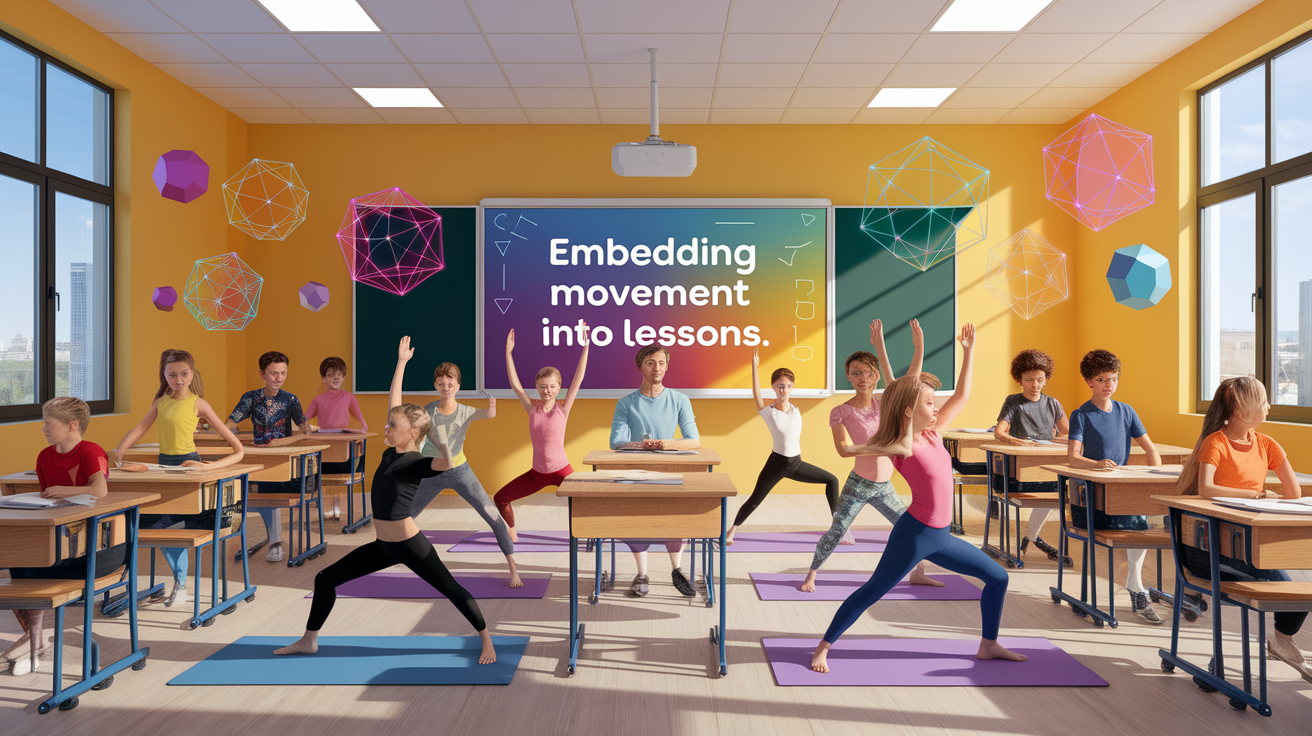
Classroom Tools and Resources
Equipping your classroom with the right tools can make movement breaks seamless. Consider:
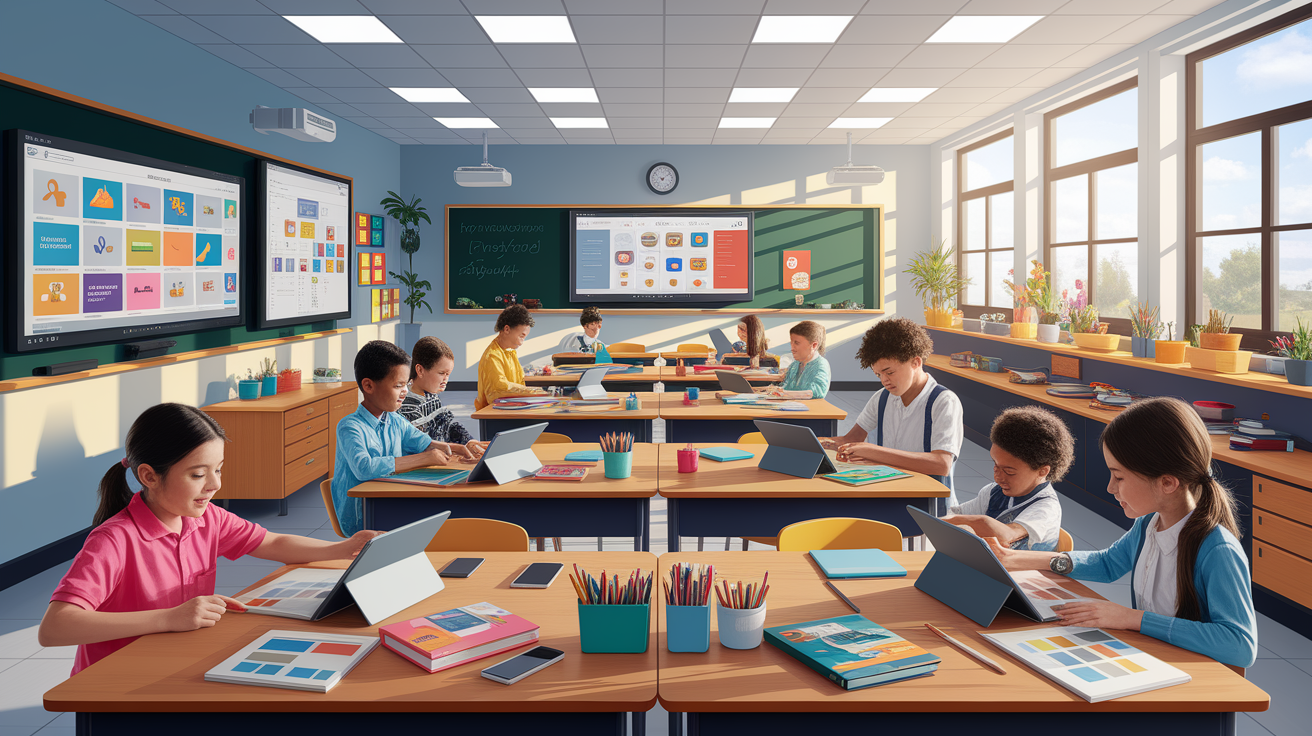
- Portable yoga mats for stretching and mindfulness activities.
- Foam dice with quick exercises on each face (e.g., 10 jumping jacks, touch toes).
- Online video libraries for age-appropriate exercise breaks or calming strategies.
- Music playlists for both dance breaks and relaxation routines.
- Visual cue cards so students can lead movement activities themselves.
Using structured resources supports better classroom management while making brain breaks accessible anytime.
Best Practices for Implementation
Not every class or age group will respond to movement in the same way. As highlighted in meta-analyses of brain breaks, activities should be tailored to fit developmental levels and be adaptable for students with special needs. Some strategies to remember:
- Time breaks strategically—energize after lunch, calm down before a big test.
- Mix up activity types—alternate between aerobic movement, stretching exercises, and mindful moments.
- Maintain variety to prevent boredom.
- Encourage student-led breaks to promote leadership and self-regulation.
- Keep routines consistent for better behavioral outcomes.
Even five-minute bursts can be effective, but remember: 15–20 minutes of movement can yield the greatest cognitive benefits when time allows.
Measuring Impact and Evolving Routines
Want proof that your movement strategy is working? Track changes in attention span, on-task behaviors, and academic performance over time. You can do this through quick teacher observations, or by noting improvements in test scores and student work quality. Research has shown that movement breaks boost cognitive function by increasing cerebral blood flow and enhancing executive functions. Use this data to adapt and evolve your routines—maybe your morning needs a brisk warm-up, while afternoons benefit from calming stretches.
Keep the Momentum Rolling
Once your class embraces brain breaks, they’ll start asking for them—and that’s a good sign! The benefits go beyond academics: students enjoy learning more, demonstrate improved self-regulation, and build stronger social connections during active moments. Keep exploring new activities, encourage creativity, and remember, movement is as much about joy and wellness as it is about performance. By keeping breaks fresh and relevant, you’ll have a classroom that’s active, engaged, and always ready to learn.
